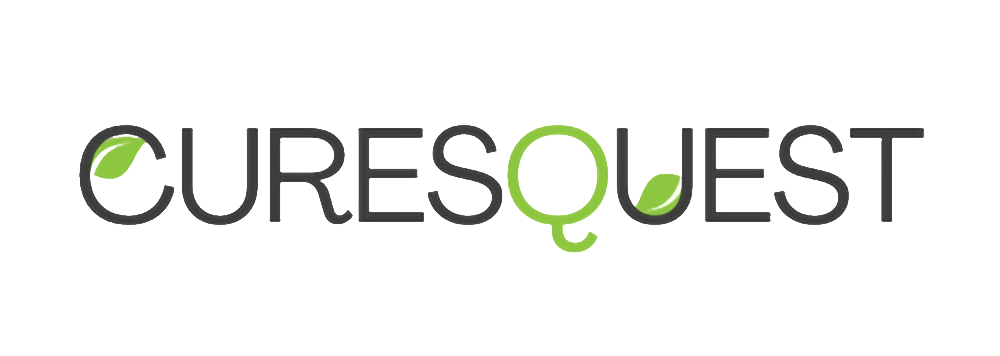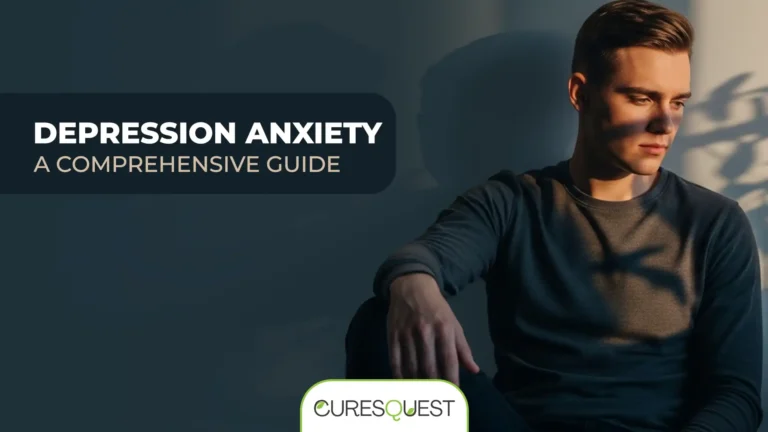In our hyper-connected, always-on world, the concept of “detox” is often associated with physical cleansing. We hear about juice cleanses, sugar detoxes, and digital fasts for our bodies. But what about our minds? Just like our physical bodies, our mental landscape can become cluttered, overwhelmed, and sluggish, weighed down by a constant barrage of information, expectations, and emotional noise. This pervasive mental fog often leads to stress, anxiety, decreased focus, and a general feeling of being “stuck.”
Enter the “mental detox” – a powerful, intentional process designed to clear out the mental clutter, reset your cognitive functions, and restore a profound sense of inner peace and clarity. It’s not about escaping reality, but rather about consciously curating your mental environment to foster well-being, productivity, and genuine happiness. Imagine a pristine, organized workspace compared to a desk piled high with papers, half-eaten snacks, and forgotten notes. Your mind deserves that same level of intentional organization.
This comprehensive guide will walk you through everything you need to know about embarking on your own mental detox journey. We’ll explore what it truly means, uncover its incredible benefits, and provide actionable, expert-backed strategies to help you declutter your mind, reduce mental clutter, improve focus, and reclaim your mental tranquility. Get ready to transform your cognitive landscape and unlock your full potential.
Table of Contents
What Exactly is a Mental Detox?
At its core, a mental detox is a conscious effort to identify, reduce, and eliminate the negative, draining, or overwhelming influences that contribute to mental clutter and stress. Think of it as spring cleaning for your brain. It’s about creating space – not just physical space, but cognitive and emotional space – for what truly matters. In an age of information overload, where our brains are constantly processing data from multiple sources, a mental detox becomes not just beneficial, but essential for maintaining optimal mental health.
Defining Mental Clutter and Information Overload
Mental clutter isn’t just about having too many thoughts. It encompasses a wide range of stressors that accumulate over time:
- Information Overload: The endless stream of news, social media updates, emails, and notifications that our brains struggle to process. This constant input can lead to decision fatigue and reduced cognitive function.
- Negative Thought Patterns: Ruminating on past mistakes, worrying excessively about the future, self-criticism, and pessimistic outlooks. These thought loops drain mental energy.
- Emotional Baggage: Unresolved feelings like resentment, anger, guilt, or sadness that we carry, impacting our emotional well-being and clouding our judgment.
- Digital Distractions: The addictive nature of smartphones, apps, and the internet, leading to fragmented attention spans and a diminished capacity for deep work or relaxation.
- Unrealistic Expectations: The pressure we place on ourselves, often fueled by societal comparisons or social media, leading to feelings of inadequacy and burnout.
- Toxic Relationships: Interactions with individuals who consistently drain your energy, criticize you, or bring negativity into your life.
These elements combine to create a dense, suffocating mental fog that hinders clarity, creativity, and inner peace. A practical mental cleanse involves systematically addressing each of these areas.
Symptoms You Might Need a Mental Detox
How do you know if your mind is crying out for a detox? Here are some common indicators:
- Constant fatigue, even after sufficient sleep.
- Difficulty concentrating or maintaining focus.
- Increased irritability or mood swings.
- Feeling overwhelmed by daily tasks.
- Persistent feelings of anxiety or stress.
- Trouble making decisions.
- Procrastination and lack of motivation.
- Disrupted sleep patterns.
- A general sense of dissatisfaction or emotional numbness.
- Difficulty enjoying moments of peace or quiet.
If several of these resonate with you, it’s a strong signal that it’s time to invest in your mental well-being and embark on a journey to clear mental fog.
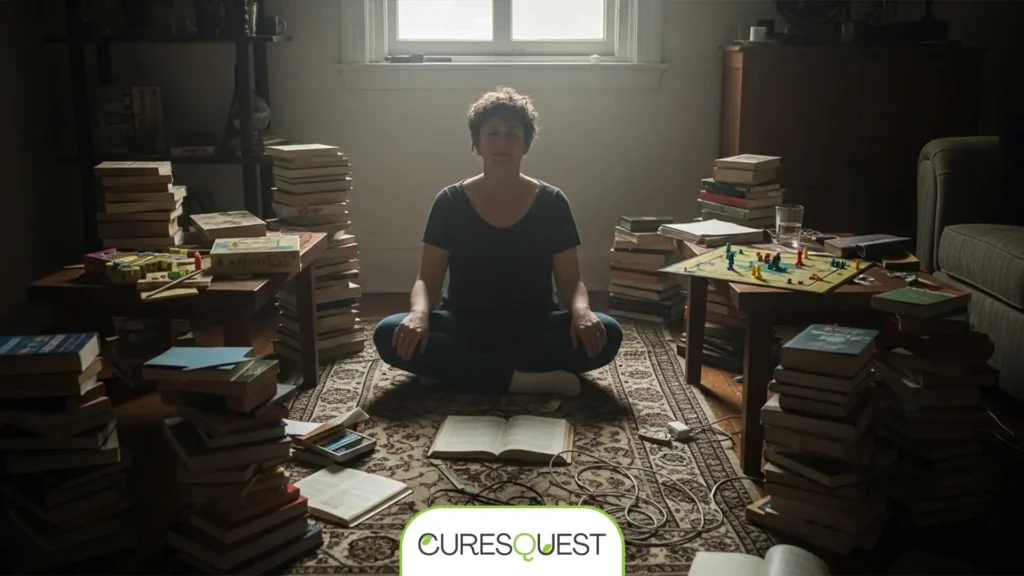
The Profound Benefits of a Mental Detox
Undertaking a mental detox offers a cascade of positive outcomes that can significantly improve your quality of life. It’s an investment that pays dividends across all areas of your existence, from personal relationships to professional performance. When you commit to strategies for mental well-being, the transformation can be remarkable.
Enhanced Mental Clarity and Focus
Imagine trying to read a book in a dimly lit, noisy room. Now imagine reading it in a quiet, brightly lit library. That’s the difference a mental detox makes for your cognitive functions. By removing distractions and reducing mental clutter, your brain can allocate its resources more effectively. This leads to:
- Sharper concentration and an improved ability to sustain attention on tasks.
- Faster decision-making, as you’re no longer bogged down by extraneous thoughts.
- Greater cognitive flexibility, allowing you to adapt to new information and challenges more easily.
- A noticeable boost in your ability to think critically and solve problems.
Ultimately, a mental detox helps you achieve a state of mental clarity that allows you to see situations, challenges, and opportunities with greater precision and insight.
Reduced Stress and Anxiety
One of the most immediate and impactful benefits of a mental detox is a significant reduction in stress and anxiety levels. Much of our stress stems from feeling overwhelmed, out of control, or constantly reacting to external stimuli. By intentionally stepping back and decluttering your mind, you:
- Break free from the cycle of rumination and excessive worrying.
- Gain a sense of control over your internal landscape, rather than being a slave to every thought or notification.
- Lower the physiological markers of stress, such as elevated heart rate and cortisol levels.
- Cultivate a more resilient mindset, better equipped to handle life’s inevitable challenges without being derailed.
This process of stress reduction is crucial for both short-term relief and long-term mental health. It’s about creating mental space where peace can flourish.
Improved Emotional Regulation
Emotional detox is a key component of a broader mental detox. When your mind is cluttered, emotions can feel chaotic and overwhelming. You might react impulsively, struggle to understand your own feelings, or find yourself on an emotional rollercoaster. A mental detox provides the space and tools to:
- Identify the root causes of strong emotions, rather than just reacting to them.
- Develop healthier coping mechanisms for managing difficult feelings.
- Cultivate self-awareness, leading to a deeper understanding of your emotional landscape.
- Respond to situations thoughtfully, rather than reacting emotionally, fostering stronger relationships and personal well-being.
This leads to a greater sense of emotional balance and a more stable inner state.
Boosted Creativity and Problem-Solving
Creative breakthroughs rarely happen in a state of frantic busyness. They emerge from moments of calm and spaciousness. When your mind is free from the incessant chatter and demands of mental clutter, it has the freedom to:
- Connect disparate ideas in novel ways, fostering innovation.
- Explore new perspectives without the pressure of immediate judgment.
- Access deeper layers of intuition and insight.
- Approach problems with a fresh, uncluttered perspective, leading to more effective solutions.
Many artists, writers, and innovators swear by regular periods of quiet reflection, which are essentially forms of mental detoxification, to fuel their creative output.
Better Sleep Quality
A restless mind is often the primary culprit behind sleepless nights. When your brain is still buzzing with worries, to-do lists, or the day’s digital inputs, falling and staying asleep becomes a challenge. By engaging in a mental detox, especially in the hours leading up to bedtime, you can:
- Quiet the mental chatter that prevents sleep initiation.
- Reduce the anxiety that often manifests as insomnia.
- Promote deeper, more restorative sleep cycles.
- Wake up feeling more refreshed and energized, ready to face the day.
Improving sleep hygiene is an integral part of holistic mental wellness, and a mental detox directly supports this vital function.
Practical Strategies for a Successful Mental Detox
Now that we understand the immense value of a mental detox, let’s dive into actionable steps you can take to begin your journey. Remember, this isn’t a one-time event but an ongoing practice of mindful living and self-care for the mind. The goal is to build a sustainable routine that integrates these principles into your daily life.
Digital Declutter: Taming the Tech Tempest
In our modern world, a significant portion of mental clutter originates from our digital devices. A digital detox is often the first and most impactful step in a broader mental cleanse.
- Limit Screen Time: Implement specific “no-screen” times, such as the first hour after waking and the last hour before bed. Consider using app timers or parental controls on your own devices to limit usage.
- Curate Your Feed: Unfollow accounts that trigger negative emotions, offer no value, or contribute to comparison traps. Seek out content that inspires, educates, or genuinely connects you.
- Notifications Management: Turn off all non-essential notifications. Only allow alerts for critical communications. This reduces constant interruptions that fragment your attention.
- Designate Tech-Free Zones: Make your bedroom a phone-free sanctuary. Keep meal times sacred and device-free. These small boundaries can make a huge difference in your ability to be present.
- Embrace “Dumb” Activities: Instead of reaching for your phone during downtime, pick up a book, listen to music, go for a walk, or simply sit in silence.
These steps help to break the addictive cycle of constant digital engagement, freeing up significant mental bandwidth.
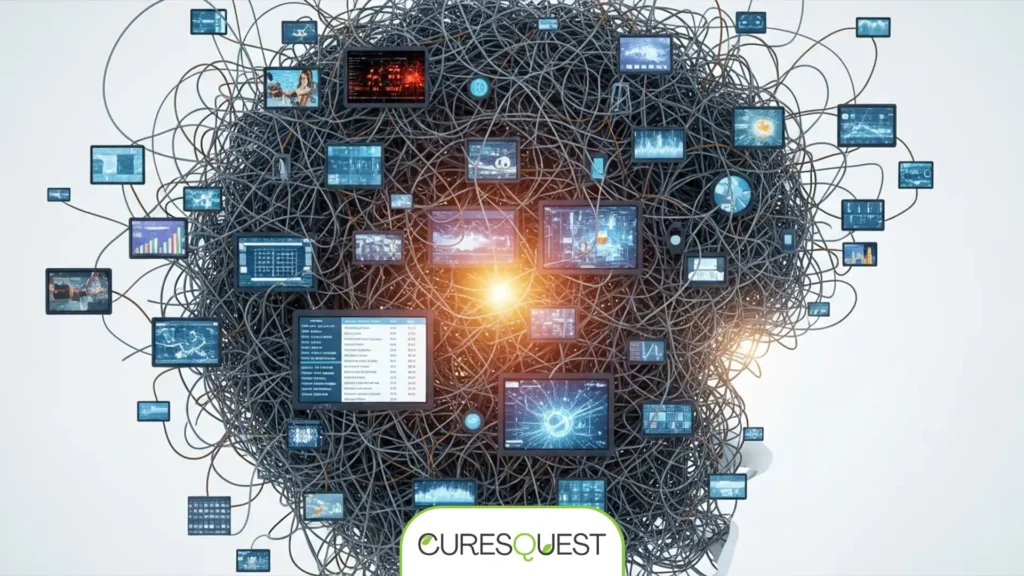
Mindful Practices: Cultivating Inner Calm
Mindfulness is the practice of being present and fully engaged in the current moment, without judgment. It’s a powerful antidote to mental clutter and a cornerstone of any effective mental detox.
- Meditation and Deep Breathing: Even 5-10 minutes of daily meditation can rewire your brain for greater calm and focus. Simple deep breathing exercises can provide immediate relief from stress. There are numerous apps and guided meditations available to help you start. For a deeper dive into the benefits of meditation, consult reputable health resources.
- Journaling for Clarity: Regularly writing down your thoughts and feelings can help you process emotions, identify negative patterns, and gain perspective. It’s a way to externalize mental clutter, allowing you to examine it more objectively.
- Nature Immersion: Spending time in nature has profound benefits for mental well-being. Go for a walk in a park, sit by a lake, or simply observe the trees outside your window. The quiet and beauty of nature can be incredibly restorative.
- Mindful Movement: Practices like yoga, Tai Chi, or even a slow, deliberate walk can help connect your mind and body, bringing you into the present moment.
These practices train your brain to be less reactive and more observant, an essential skill for managing negative thoughts and creating mental space.
Re-evaluating Relationships and Boundaries
Our relationships significantly impact our mental state. Sometimes, a mental detox requires us to honestly assess who and what we allow into our inner circle.
- Identify Toxic Relationships: Reflect on relationships that consistently leave you feeling drained, criticized, or unhappy. It’s not always about cutting people off, but about understanding their impact and adjusting your engagement.
- Setting Healthy Boundaries: Learn to say “no” to requests that overextend you. Communicate your needs clearly and respectfully. Protecting your time and energy is a vital act of self-care.
- Cultivate Positive Connections: Actively seek out and nurture relationships with people who uplift, inspire, and support you.
This aspect of mental detoxification can be challenging but is crucial for long-term emotional well-being.
Physical Well-being’s Role in Mental Health
The mind and body are inextricably linked. Neglecting your physical health will inevitably impact your mental clarity and resilience.
- Nutrition: A diet rich in whole foods, fruits, vegetables, and healthy fats supports brain health. Reduce processed foods, excessive sugar, and caffeine, which can contribute to mood swings and mental sluggishness.
- Exercise: Regular physical activity is a powerful stress reliever and mood booster. It releases endorphins, improves cognitive function, and helps manage anxiety. Even a moderate walk daily can make a difference.
- Sleep Hygiene: Prioritize 7-9 hours of quality sleep each night. Establish a consistent sleep schedule, create a relaxing bedtime routine, and optimize your sleep environment. To learn more about how to improve your sleep quality, check out our dedicated guide.
These foundational elements of self-care are non-negotiable for anyone seeking to detox their brain and enhance overall well-being.
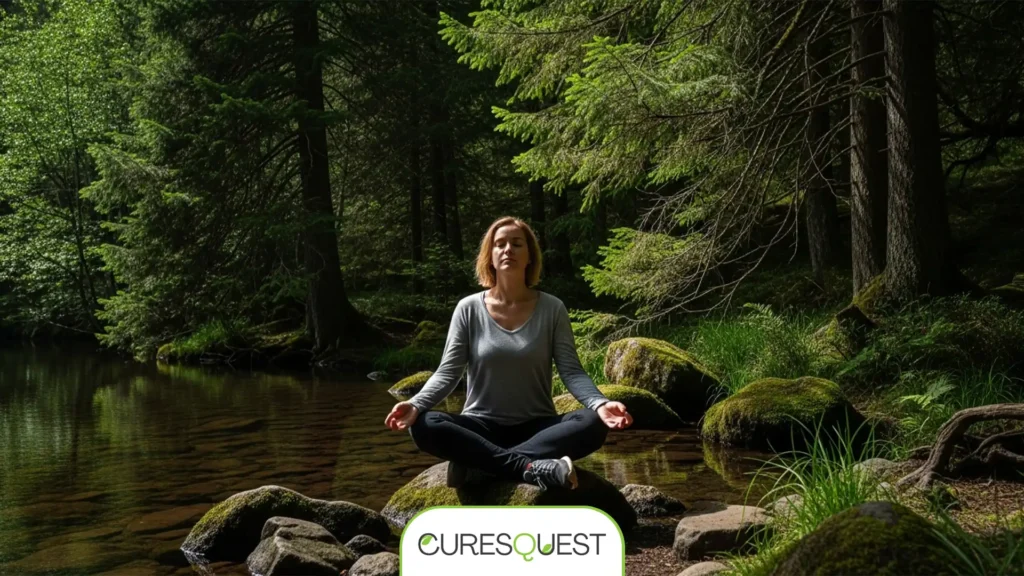
Decluttering Your Physical Space
Our external environment often mirrors our internal state. A cluttered physical space can contribute to a cluttered mind, creating subtle but persistent stress.
- Minimalism Principles: Consider adopting some tenets of minimalism. Reduce possessions that don’t serve a purpose or bring you joy. Less stuff means less to organize, clean, and worry about.
- Organized Environment = Organized Mind: Dedicate time to tidying up your home and workspace. A clean, organized environment can foster a sense of calm and control, making it easier to focus and think clearly.
Even small steps like clearing your desk or organizing a single drawer can have a positive ripple effect on your mental state.
Managing Information Overload
Beyond digital devices, we are constantly bombarded with information from news, work, and social circles. Learning to manage this intake is critical for a mental detox.
- Curated Content Consumption: Be intentional about what news you consume and from where. Limit your exposure to sensational or excessively negative news cycles. Choose sources that are balanced and informative.
- Single-Tasking: In a world that glorifies multitasking, consciously practice single-tasking. Focus on one activity at a time, whether it’s working on a project, eating a meal, or having a conversation. This improves focus and reduces mental fatigue.
- Schedule “Thinking Time”: Dedicate specific blocks in your day for focused thought, planning, or creative work, free from interruptions.
This proactive approach helps you overcome information overload, preventing your mind from becoming a dumping ground for irrelevant data.
The Power of a Digital Detox: A Deeper Dive
While digital decluttering is a component of a broader mental detox, its pervasive impact on modern life warrants a closer look. Our reliance on smartphones, social media, and constant connectivity has fundamentally reshaped our cognitive habits and emotional landscapes. A deliberate digital detox isn’t just about reducing screen time; it’s about reclaiming your attention span, fostering deeper real-world connections, and reducing the constant hum of digital noise that contributes to stress and anxiety.
The average person spends several hours a day on their phone, checking it dozens of times. This constant engagement can lead to:
- Fragmented Attention: The brain becomes accustomed to rapid, shallow processing, making sustained focus difficult.
- Social Comparison: Curated online personas often lead to feelings of inadequacy and envy. Research from the American Psychological Association highlights the impact of social media on mental health.
- Fear of Missing Out (FOMO): The anxiety that arises from believing others are having more rewarding experiences, driven by social media feeds.
- Reduced Creativity: When every idle moment is filled with digital input, there’s no space for boredom, which is often a precursor to creative thought.
- Sleep Disruption: Blue light from screens interferes with melatonin production, and the mental stimulation keeps the brain active.
A true digital detox involves setting strict, intentional boundaries. This could mean a full weekend away from all devices, or simply dedicating specific hours each day to being completely offline. It’s about consciously choosing to engage with the world around you, rather than through a screen. This can significantly boost mental clarity, allowing you to engage with the present moment more fully.
Impact of Digital Overload on Mental Health
To further illustrate the tangible effects of excessive digital consumption, consider the following data:
| Aspect of Mental Health | Impact of High Digital Consumption | Impact of Digital Detox/Reduced Use |
|---|---|---|
| Anxiety Levels | Increased feelings of worry, restlessness, social anxiety. | Significant reduction in anxiety, greater sense of calm. |
| Depression Risk | Higher incidence of depressive symptoms, feelings of isolation despite connectivity. | Improved mood, enhanced sense of connection in real life. |
| Attention Span & Focus | Fragmented attention, difficulty concentrating on single tasks, reduced cognitive endurance. | Improved ability to focus, enhanced cognitive performance, better memory recall. |
| Sleep Quality | Delayed sleep onset, disturbed sleep cycles, reduced REM sleep due to blue light exposure and mental stimulation. | Faster sleep onset, more restorative sleep, increased feelings of being rested. |
| Self-Esteem | Lowered self-esteem due to social comparison, cyberbullying, or unrealistic portrayals of life. | Increased self-acceptance, reduced comparison, greater appreciation for personal achievements. |
| Productivity | Frequent interruptions, procrastination, reduced deep work capacity. | Enhanced productivity, improved time management, greater sense of accomplishment. |
| Social Connection | Superficial online connections, reduced quality of face-to-face interactions. | Deeper, more meaningful real-world relationships, improved communication skills. |
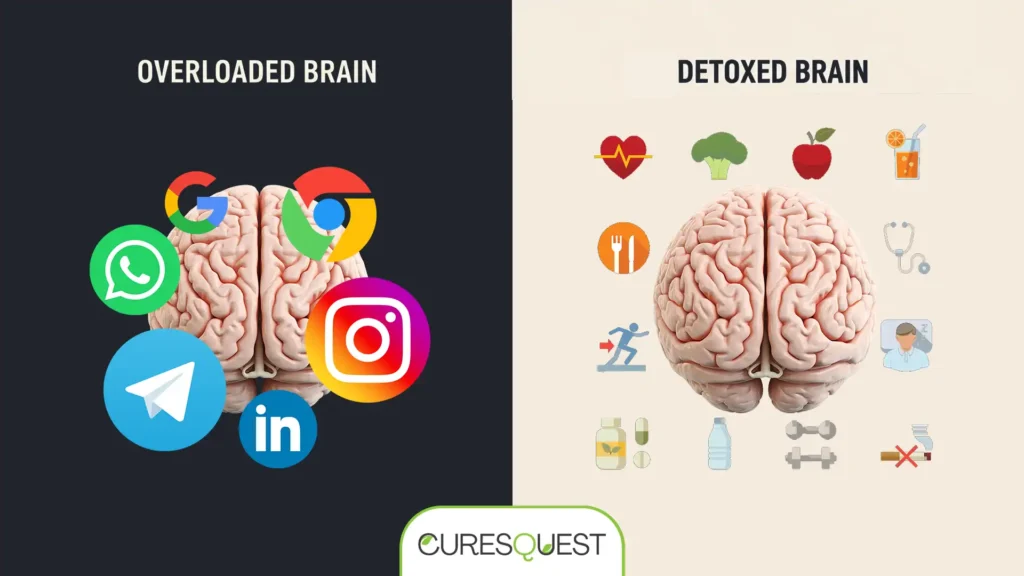
Building a Sustainable Mental Detox Routine
A mental detox isn’t a one-and-done event. To truly benefit and maintain a clear, peaceful mind, it needs to become an integrated part of your lifestyle. This involves building new habits and consistently practicing the strategies we’ve discussed. Understanding the science of habits can help you form lasting changes.
Start Small, Be Consistent
Don’t try to overhaul your entire life overnight. Choose one or two strategies that resonate most with you and commit to practicing them consistently. For example, start with 10 minutes of meditation daily, or designate one evening a week as screen-free. Small, consistent steps build momentum and are more likely to lead to lasting change than dramatic, unsustainable overhauls.
Schedule “Mind-Free” Time
Just as you schedule work meetings or appointments, schedule dedicated time for mental rest and rejuvenation. This isn’t just about doing nothing; it’s about engaging in activities that allow your mind to wander freely, without pressure or external demands. This could be a leisurely walk, listening to music, gardening, or simply daydreaming. This is crucial for creating mental space.
Embrace Discomfort
When you first begin a mental detox, especially a digital one, you might experience feelings of boredom, restlessness, or even anxiety. These are normal reactions as your brain adjusts to less stimulation. Instead of immediately seeking distraction, try to sit with these feelings. Observe them without judgment. This practice builds mental resilience and helps you break free from the habitual need for constant external input.
Seek Professional Support (When Needed)
While many aspects of a mental detox can be self-guided, sometimes the mental clutter stems from deeper issues like chronic stress, trauma, or mental health conditions. If you find yourself struggling with persistent anxiety, depression, or overwhelming negative thoughts that impact your daily life, don’t hesitate to seek professional help. Therapists, counselors, and coaches can provide personalized strategies and support. Resources like FindTreatment.gov can help you locate mental health services. Remember, seeking help is a sign of strength, not weakness.
Common Pitfalls and How to Avoid Them
Embarking on a journey to detox your mind is commendable, but it’s important to be aware of potential stumbling blocks that can derail your progress. Anticipating these challenges can help you navigate them more effectively.
Overwhelm from Trying to Do Too Much, Too Soon
One of the biggest paradoxes of a mental detox is the risk of becoming overwhelmed by the process itself. If you try to implement every single strategy simultaneously, you might end up feeling more stressed than when you started.Solution: Prioritize. Choose one or two areas to focus on first. Perhaps it’s a digital detox for an hour a day, or 5 minutes of mindful breathing. Once those become habits, gradually introduce more. Remember the “start small, be consistent” principle.
Expecting Instant Results and Getting Discouraged
Our minds, like our bodies, need time to adjust and heal. You won’t achieve complete mental clarity overnight, especially if you’ve been operating with significant mental clutter for years.Solution: Practice patience and self-compassion. View your mental detox as a journey, not a destination. Celebrate small victories and acknowledge that setbacks are a natural part of any change process. The benefits of mental decluttering accumulate over time.
Mistaking Isolation for Detoxification
While stepping back from certain social inputs (especially digital ones) is part of a detox, true mental well-being thrives on healthy human connection. Isolating yourself completely can lead to loneliness and exacerbate negative feelings.Solution: Focus on quality over quantity in your social interactions. Nurture meaningful relationships in person. Engage in activities that connect you with others who share your values, without relying solely on digital platforms. A mental detox aims to improve, not eliminate, healthy social engagement.
Ignoring the Root Causes of Mental Clutter
Sometimes, mental clutter is a symptom of deeper issues – unaddressed trauma, chronic stress, unresolved conflict, or unfulfilled needs. Simply removing distractions might provide temporary relief but won’t solve the underlying problem.Solution: Use the clarity gained from your detox to reflect on what truly contributes to your mental burden. If you identify persistent patterns or deep-seated issues, consider seeking guidance from a therapist or counselor. A holistic mental wellness approach often requires addressing root causes.
Falling Back into Old Habits
The allure of old, comfortable (even if unhealthy) habits can be strong. After a period of successful detox, it’s easy to slip back into excessive screen time, overthinking, or neglecting self-care.Solution: Establish clear boundaries and routines that support your mental well-being. Regularly review your progress and adjust your strategies as needed. Have accountability partners or reminders. Recognize that maintaining a detoxed mind is an ongoing practice, like maintaining physical fitness.
Frequently Asked Questions About Mental Detox
How long does a mental detox take?
There’s no fixed timeline for a mental detox. It’s less about a specific duration and more about adopting sustainable practices. You might feel initial benefits within a few days of implementing changes, but true mental clarity and resilience develop over weeks and months of consistent effort. Think of it as an ongoing lifestyle adjustment rather than a temporary cleanse.
Can a mental detox help with anxiety?
Absolutely. A mental detox is highly effective in reducing symptoms of anxiety. By minimizing external stressors (like digital overload), decluttering negative thought patterns, and incorporating mindfulness, you can significantly lower your overall anxiety levels, improve emotional regulation, and cultivate a greater sense of calm and control.
Is a digital detox part of a mental detox?
Yes, a digital detox is often a crucial and foundational component of a comprehensive mental detox in today’s world. The constant bombardment of information, notifications, and social media can be a primary source of mental clutter, distraction, and stress. Reducing digital input frees up mental space and allows for greater focus and presence.
What are the first steps to start a mental detox?
Start small. Begin by identifying one major source of mental clutter, such as excessive social media use or constant worrying. Then, choose one actionable step: for example, dedicating the first hour of your day screen-free, or practicing 5 minutes of mindful breathing. Consistency with small changes is more effective than attempting a drastic overhaul.
How often should I do a mental detox?
A mental detox is ideally an ongoing process, integrated into your daily and weekly routine. However, you might also benefit from periodic “deeper dives” – perhaps a weekend-long digital fast once a month, or a dedicated week of focused mindfulness practices a few times a year. Listen to your mind and body; if you feel overwhelmed, it’s time for a reset.
Can therapy complement a mental detox?
Yes, therapy can be an excellent complement to a mental detox, especially if your mental clutter stems from deeper psychological issues, trauma, or persistent negative thought patterns that are difficult to manage on your own. A therapist can provide tools, guidance, and support to address underlying causes and develop healthier coping mechanisms.
Are there any negative effects of a mental detox?
While the overall effects are positive, you might experience some initial discomfort. This can include feelings of boredom, restlessness, or even increased anxiety as your mind adjusts to less stimulation. You might also become more aware of underlying issues that were previously masked by distractions. These are temporary and signs that your detox is working, prompting you to address deeper needs.
Conclusion: Embrace Your Journey to Mental Clarity
The journey of a mental detox is a profound act of self-care and empowerment. In a world constantly vying for your attention, taking intentional steps to declutter your mind is not a luxury, but a necessity for cultivating lasting peace, clarity, and well-being. By embracing strategies like digital decluttering, mindful practices, and healthy boundaries, you equip yourself to navigate life’s complexities with greater resilience and a more focused perspective.
Remember, a mental detox is a continuous process of observation, adjustment, and self-compassion. It’s about creating a harmonious inner environment where your thoughts, emotions, and creativity can thrive unhindered. Start today, take those first small steps, and witness the transformative power of a clear and peaceful mind. Your mind is your most valuable asset – invest in its health, and watch your entire life flourish.
